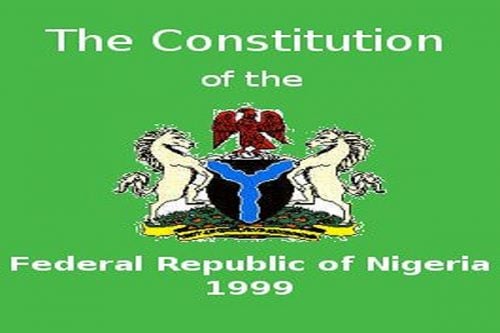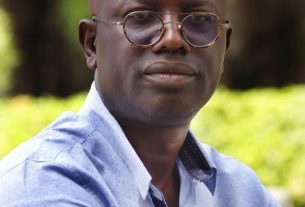The calls for a new constitution for Nigeria have become increasingly strident. The 1999 Constitution is a military-imposed document, so its piecemeal amendment by the National Assembly will do little to capture the true aspirations of citizens.
In reality, the country operates a unitary constitution garbed in the borrowed robes of federalism. A true federal constitution accommodates diversity and pluralism. It frontally addresses fiscal federalism and devolution of powers to the federating units, among others.
A constitution that prescribes a single police force to protect 237 million citizens and the centre collecting 52.6 per cent of all revenues, is an ogre that devours the constituent political units, peace and progress.
A former President of the Nigerian Bar Association, Wole Olanipekun, SAN, has rightly urged the National Assembly not to waste time on the current constitutional amendment. He suggested a new constitution, which should take effect from 2031 when the current set of political office-holders would have served out their full terms.
At the 13th Convocation Lecture he delivered at the Afe Babalola University, Ado-Ekiti, Olanipekun said Nigeria needed a national referendum and a homegrown legal framework that would reflect the genuine and collective will of the people and their uniqueness. We agree.
The Chileans did this. Chile operated a military-era constitution like Nigeria. But in October 2020, it decided in a popular referendum to abolish it and engender a more inclusive, democratically derived grundnorm.
Before Olanipekun, many prominent Nigerians and groups had called for the overhauling of our constitution.
In August 2024, a former Commonwealth Secretary-General, Emeka Anyaoku, led a group of eminent Nigerians known as The Patriots to meet President Bola Tinubu in the quest for a new constitution.
They urged the President to send an executive bill to the NASS to convene a National Constituent Assembly whose mandate would be to produce a new draft constitution for Nigeria.
They proposed that the draft should be subjected to a national referendum before it could become tenable. Tinubu promised to review this request after his economic reforms. He should keep to his promise.
Anyaoku had earlier demanded a new constitution for Nigeria in his 2023 Convocation Lecture at the Afe Babalola University. He noted that the essence of the new constitution would involve devolution of powers from the centre to more viable federating units with strong provisions for inclusive governance at the centre and in the regions.
In April 2022, legal luminary Afe Babalola suggested fashioning a new constitution that would provide for part-time legislators and a non-executive president.
Even the ruling APC had pledged before the 2015 elections to address the issue of restructuring and devolution of powers, but this has not materialised.
Nigeria should emulate pluralistic countries like Canada, the United States and India, which have true federal constitutions.
To avoid going the way of Yugoslavia, Czechoslovakia and Sudan, which disintegrated because they failed to operationalise a federal constitution to address their pluralism, the political elite should heed the call for a new and truly federal grundnorm.
The centre is just too powerful in Nigeria, driving a perpetual, divisive struggle for its control by the regions.
While the Federal Government receives 52.68 per cent of the statutory revenue, the 36 states receive 26.72 per cent. The 774 local governments receive 20.60 per cent. This excludes the additional 13 per cent derivation fund for oil-producing states and the distributions for Value Added Tax revenue.
This “feeding-bottle” approach to revenue allocation should stop. With a $4.21 trillion GDP, California is the fourth-largest economy in the world, but it is just one state in the US.
In Nigeria’s First Republic, the regions retained 50 per cent of the revenue, while the centre got 20 per cent mainly for diplomatic and defence. Thirty per cent went to the Distributable Pool Account.
The 1963 Constitution made this possible. There were groundnut pyramids in the North, palm oil in the South-East and cocoa in the South-West. There was healthy competition among these regions, and each concentrated on its comparative advantage and could stand firmly on its own.
Nigeria should return to this system. The federating units should be more concerned with productivity and wealth creation instead of revenue sharing.
This will discourage the struggle by every region to control the centre. It will address the persistent cries of marginalisation and mutual distrust among the regions.
The report of the 2014 National Conference should be reviewed. Several far-reaching recommendations of the confab contain what Nigeria needs to have a people-oriented constitution.
The country is doomed without a new constitution that truly reflects Nigeria’s federal structure.
The Punch





